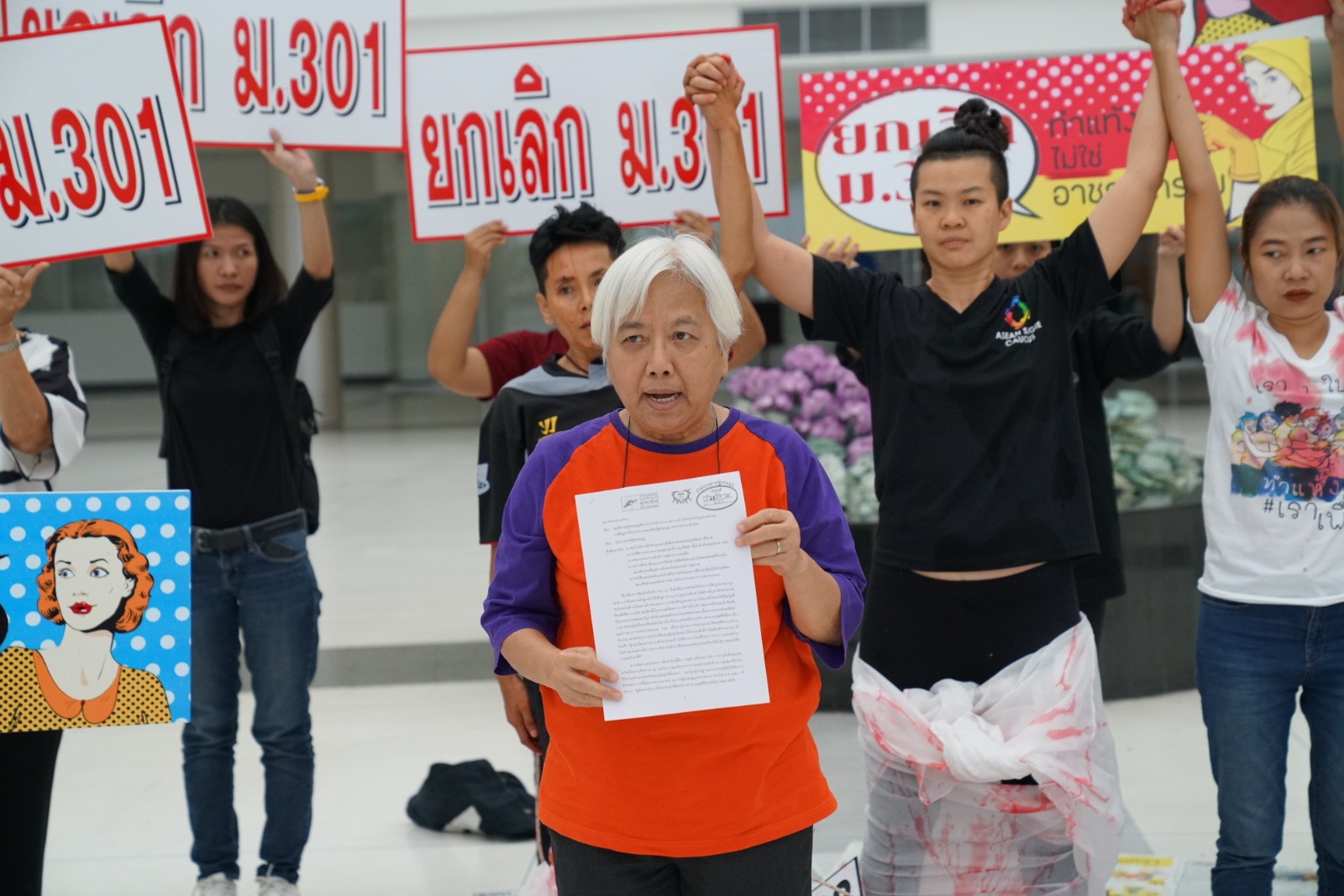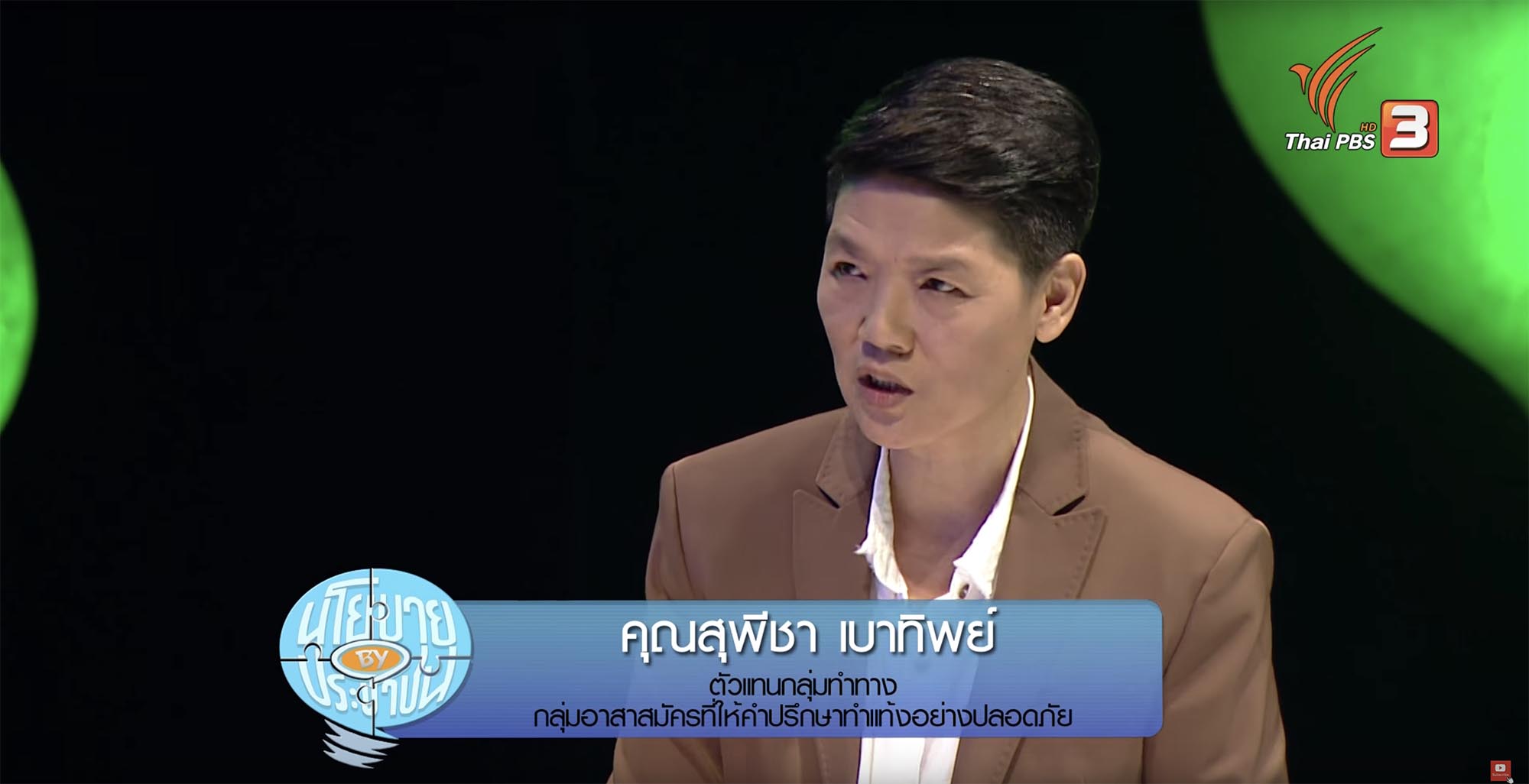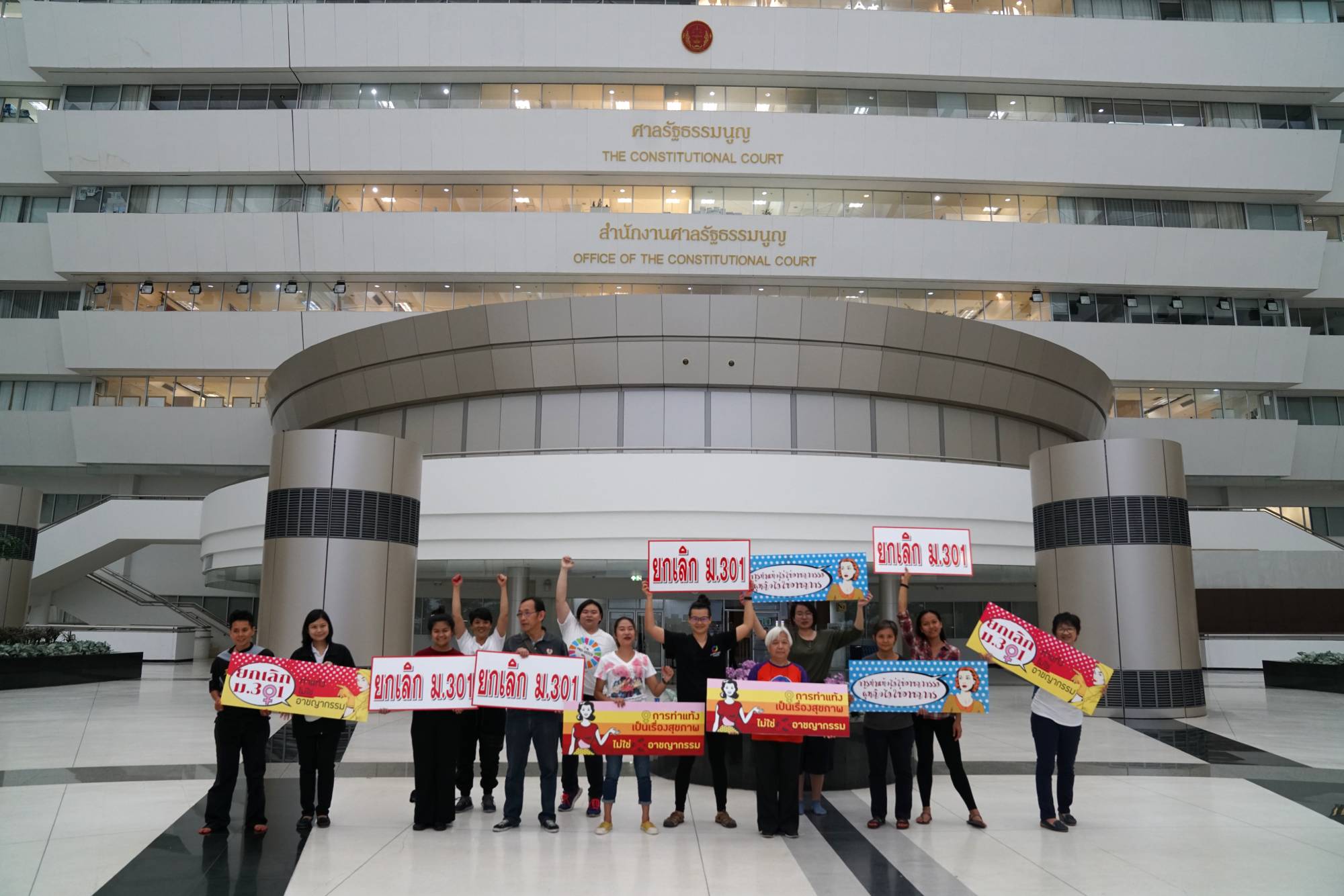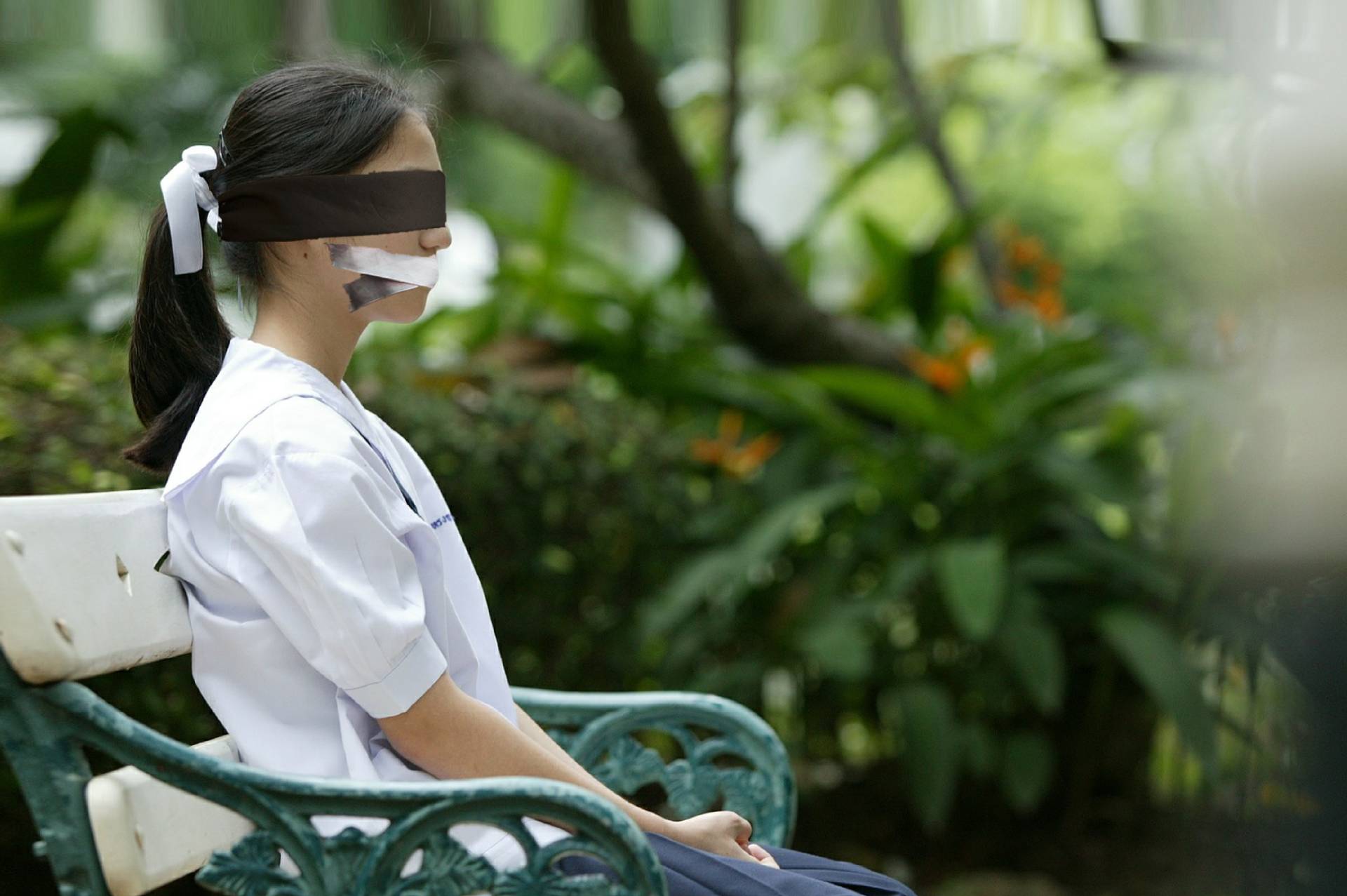When 29-year-old NGO worker Nisarat Jongwisan got pregnant in 2010, she knew nothing about her options.
Her nerves were racing as she showed up at the clinic on Soi Sukhumvit 12. She’d only found it thanks to a friend who’d been in similar shoes a few years earlier.
“[It looked] just like any other clinic you’d go to when you get sick,” Nisarat said in a recent interview with Coconuts Bangkok.
Only she wasn’t sick, she was seeking an abortion.
Supecha Baotip, founder of TamTang, an NGO that provides information about safe abortions to women online, found herself in the same situation in 2003.
“I was 25 when I got pregnant, with no doubt in my mind that I was not ready,” she said.
Supecha found her clinic via a tiny poster stuck to the walls of a songthaew, a form of public transport that’s a cross between a pickup truck and a bus.
“Can you believe I got abortion information from of a ghetto truck? How safe do you think that can be? It was definitely very illegal,” she said, shaking her head at the memory.
Two very different women terminated their unplanned pregnancy seven years apart, in different clinics, and under different circumstances.
But they had one thing in common — they knew nothing.
Abortion 101
Let’s get some basics out of the way. Thanks to long-standing religious beliefs, community stigma and centuries of criminalization, abortion is not something commonly understood or openly discussed in Thai society.
Governed by Sections 301-305 of the 1956 Penal Code, performing an abortion is — at least on paper — a criminal act, punishable by up to three years in prison and/or a fine of up to THB6,000 (US$185).
However, there are exemptions in which the procedure is legal, including when the pregnancy is the result of rape or if it poses serious physical or mental health risks.
The last category, in particular, is very much open to interpretation and key to gaining approval.
The procedure, safe, legal or otherwise, is common across all socioeconomic groups. A 2014 study by the Thai Journal of Obstetrics and Gynaecology estimates that 300,000-400,000 abortions are performed in the kingdom each year.
Thailand’s abortions are modern and safe. They’re also out of reach for most women (Video)
But the fact that a woman is legally eligible for an abortion doesn’t mean she can simply walk into a hospital or clinic and request one.
The same 2014 study shows that the single most important factor in regards to access is the attitude of individual medical practitioners and hospital or clinic administrations.
That fact was underscored by two gynecologists Coconuts spoke to whom regularly perform abortions.
“Each doctor determines whether or not abortion is available to a patient. Most gynecologists refuse to perform abortions just because they don’t want to,” said Dr. Nithiwat Saengruang.
He observed that the “pro-life” stance seems to be common among Thailand’s medical community and alleged that many schools, even in Bangkok, boycott teaching how to safely perform the procedure.
Dr. Vorachart Meevasana, who claims to perform upwards of a thousand abortions a year, agreed.
“I know a lot of doctors who see their patients as ‘sluts’ or will only perform abortions on younger women because they believe female adults should uphold their maternal responsibilities,” he says.
“At the end of the day, the doctors are the one performing the procedure, right? So your experience depends entirely on their mentality and approach,” he said.
Though medical facilities that refuse to perform abortions are expected to refer eligible patients to another facility, they don’t always do so, and there is no law stopping you from simply turning away a woman seeking to terminate a pregnancy.
In turn, many women are forced to turn to a non-qualified providers or knock-off abortion pills instead.
In fact, according to a report by Prof. Kamheang Chaturachinda, president of Thailand’s Women’s Health and Reproductive Rights Foundation, most abortions performed in Thailand are done “underground.”

This results in a fatality rate estimated at a 300 deaths per 100,000 abortions — a deeply troubling statistic when compared to less than one death for 100,000 safe abortions in developed countries.
Given that legal abortions are universally considered almost “100 percent” safe today, the fact that any lives are being put at risk is preposterous to Supecha.
“There shouldn’t be a debate about the safety of [legal] abortions anymore. The statistics all speaks for itself,” she said. “We should, instead, focus on whether everyone has access to safe abortions.”
An illegal abortion 15 years ago
After going to the address found on the wall of that Songthaew bus, Supecha recalled finding herself at a clinic on the capital’s outskirts — she doesn’t remember the name — that, while nothing fancy, “didn’t look bad.”
“I went in and awkwardly told them what I wanted. I don’t remember getting an ultrasound, signing agreements, or being questioned. All they told me was that I looked ‘probably about two months along’ before giving me anesthetic to put me to sleep.
“Next thing I knew, I woke up when it was over. I remember feeling drowsy,” she told us.
“I guess I was lucky because I was OK.”
At no point was the procedure she was undergoing explained to her, Supecha said.
“Until this day, I still have no idea what they did to me.”
“All I know is that it was some kind of surgical procedure, but I don’t know which one. They could have scraped out my womb with a stick for all I know.”

A legal abortion 8 years ago
Nisarat Jongwisan’s experience in 2010 provides some insight into how the process of getting an abortion has changed.
After entering the privately-owned clinic in Bangkok’s Klongtoey district, she was told to sign a large pile of paperwork and interrogated twice about her life and reproductive health — first by a nurse then by a psychologist. Both their signatures would be required to attest to the potential mental health risks that came with carrying the pregnancy to term.
The rapid series of questions carried an unmistakable tone. She was being chastised, judged, shamed.
How old are you? Why are you doing this? Where is your boyfriend? Why isn’t he here? Are you in school?
Satisfied, the documents were eventually signed by the duo, Nisarat was given an ultrasound, then provided with a sarong to change into.
“When I got on the chair with the stirrups, it was absolutely silent. The nurses and doctors didn’t say anything. Nobody explained anything to me. I wasn’t given an option about which method I preferred. Right before the procedure started, a nurse leaned over and softly said ‘bear with me, this will be over in a second.’
“I was terrified. I had no idea what was about to happen to me.”
Nisarat describes the minutes that followed as the longest of her life.
“It hurt more than I can articulate … it was a brief moment that seemed to last forever.”
Nisarat was given no anesthetic for the procedure she now knows was a vacuum or suction aspiration — an approximately 15-minute procedure in which a vacuum-like tool is used to remove the fetus via the cervix.
Afterwards, she was given a sanitary pad and told to rest for an hour before being sent home. No follow-ups were scheduled.
Though the operation took less than a full workday, Nisarat described a mental recovery process that took years.
“I wasn’t OK at all. I felt guilty, worthless and punished myself for many, many years. I started hating myself and was really suffering from repeated nightmares of a ‘ghost baby’ (a traditional Thai belief that an aborted fetus will come back to haunt you).”
“I felt hopeless.”
What she believes could have dramatically changed her experience can be summarized in one word: information.
“As a patient, I have the right to know what is going to happen to me and what is going to literally enter my vagina,” she said.
“Even after the procedure, I had no idea what they did to my womb … It’s like they’re punishing us for getting an abortion, like they’re saying ‘you must feel pain and you must remember. You must be scared and never come back.’
“Not being informed, not having any knowledge, is terrifying.”
Abortion today
To address the provision gap in Thailand’s reproductive healthcare industry, the Referral System for Safe Abortion (RSA), a multidisciplinary collective of pro-choice physicians, counselors, advocates, and nurses, was established in 2014.
One of the group’s primary missions is to refer pregnant woman to the trusted, qualified and legal providers nearest them. It’s an incredibly important service, Supecha said, given that the major issues facing most Thai women seeking an abortion — beyond the unwillingness of doctors — is cost and distance.

For women living in rural areas, that can at times be an insurmountable difficulty.
“Abortions are only easily accessible if you have the money and are in big cities,” she said.
A vacuum aspiration procedure can cost up to THB5,000 (approximately US$150), while pills used to induce abortion [mifepristone and misoprostol] typically cost about THB500 (US$15) — an amount roughly 1.5 times Thailand’s daily minimum wage.
Moreover, there are currently only about 100 hospitals and clinics in the entire country that are part of RSA and considered “pro-choice.”
Those facilities are far from evenly dispersed, with most located in major cities.
“There are three facilities in Bangkok, but one has limited spaces for abortion every month. Two clinics in Chiang Mai and only one in Phuket,” Supecha said.
She added that some provinces have either no facilities at all or strict rules limiting the operation to women of certain ages or residents of a specific district.
As far as the number of doctors goes, Doctor Nithiwat estimates that of the roughy 40,000-50,000 gynecologists in Thailand, only about 125, or about 0.2 percent, are part of RSA.
While Thailand has made advances since her own 2003 abortion, the numbers make it painfully clear the country has a long way yet to go, according to Supecha.
Legal reform, she said, is just the tip of the iceberg in making safe reproductive healthcare readily available to all. Efforts to destigmatize the procedure by the public, doctors and hospital administrators remain very much needed.
For Nisarat, who was left to spend years sorting through the mental anguish of a procedure undergone without counseling, the stigma is already gone.
“I’m not a victim… I had a choice and I made it,” she said firmly.
“I don’t want you to feel sorry for me.”
Editor’s Note: The name of a specific abortion provider has been removed at the request of a source.



Reader Interactions